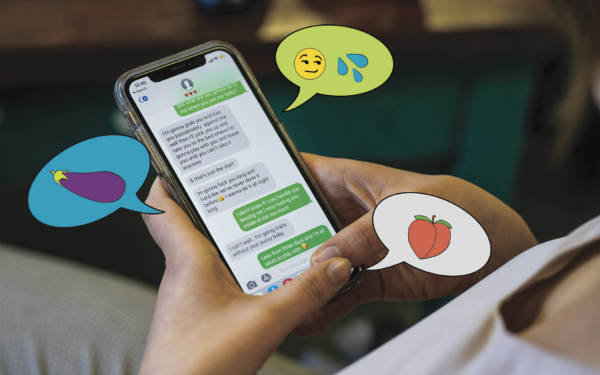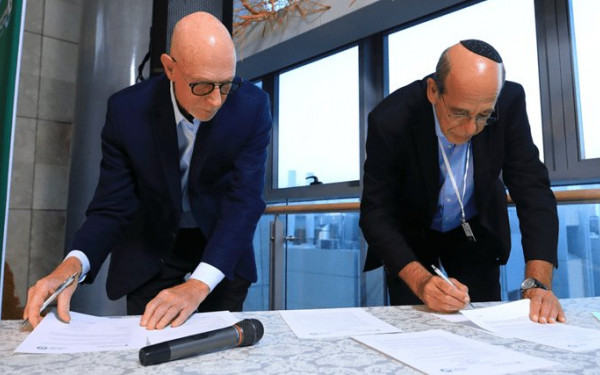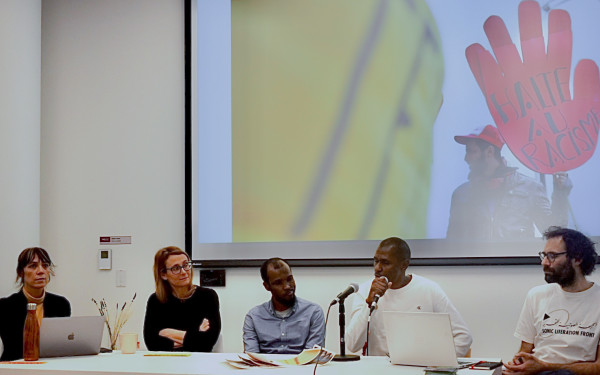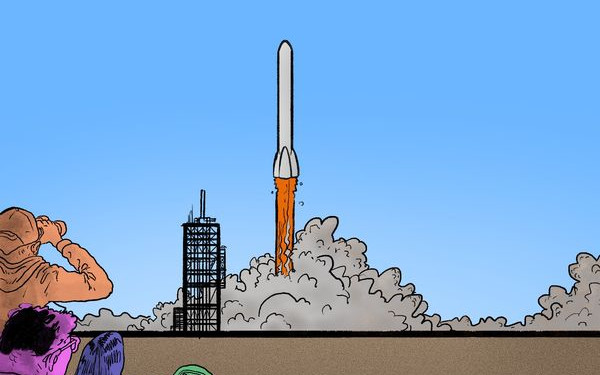KWS Brings African Issues to the Global Village
Web Series at Concordia Introduces Students to Technologies for Social Change
Uniting a diaspora is, by its very nature, a big challenge.
The Kongossa Web Series is taking it head-on.
The online and face-to-face initiative began last year as a means to link together African and Caribbean peoples globally to discuss the social and economic issues facing the world and the Afro-Caribbean diaspora.
The second annual conference—held and live-streamed from Concordia last Saturday in partnership with Concordia’s chapter of the African and Caribbean Students’ Network of Canada—turned its focus on something paramount for future success in African nations: technology.
“The whole idea [of the conference] is to make sure people in Africa are going to use technology in a good way,” said KWS co-founder Franck Nlemba.
“Africa is leading on mobile [phone use] for example, so we need to make sure that all these young guys are going to use technology to create and to transform their environment positively.”
The initiative was billed by organizers as an event designed to give a clear view of the socioeconomic impact of information technology and community managers, as well as the growing role these both play in the development of a society.
Workshops were also set up to provide guests with tools for self-marketing and finding opportunities in private and not-for-profit sectors.
David Masanga, president of the African and Caribbean Students’ Network of Canada at Concordia, says partnering with KWS enabled both groups to reach out to the Afro-Caribbean diaspora at-large as well as to Concordia students directly.
More importantly, he says working with KWS lets ACSioN do what it was originally founded for: engaging black Concordia students on African issues and finding ways to contribute solutions.
“[We work with] black students here, international students mostly, but also black [Canadians] as well to let them know there is something to change in Africa,” said Masanga.
“Our role is to bring out the solidarity among black Concordians as well, so that means they don’t feel they’re alone at Concordia, they get to know people and they get to know professionals living around here,” he continued.
1_900_599_90.jpg)
“There are problems in Africa and many things we could use […] like technology, health and personal branding that you can use to help and change Africa.”
Mobile Africa
Keynote speaker Jon Gosier runs Apps4Africa, an acceleration program for African startup tech companies that gives successful applicants training and up to $10,000 in funding.
The program also helps provide follow-up funding from partner organizations and companies, according to its website. Of the 19 companies it has funded in 12 African countries, 11 are still active.
Gosier lived in Kampala, Uganda, for three years as he built up Appfrica, another of his initiatives and an organization now based in Philadelphia that builds IT solutions tailored to the continent and specific areas of Africa.
His successes came to the attention of the U.S. State Department, which worked with him to develop Apps4Africa.
Originally from Atlanta, Gosier says he returned to the U.S. to build connections between the two continents.
“I moved back to the [United] States […] to ultimately be a resource that could move between two worlds,” he told the audience in a packed lecture hall in Concordia’s MB Building.
“I could be in Africa and work with young entrepreneurs and students and businesses, but I could also be in the States and work with NGOs and governments.”
According to the Canadian International Development and Research Centre, mobile use in developing nations has increased unfalteringly, now accounting for 70 per cent of worldwide use.
The increased usage of mobile technology allows, among other things, farmers to sell their produce at market value without any middle man, yielding roughly three to six per cent more direct profit, according to IDRC Information and Networks Program Leader Laurent Elder, who also spoke at the conference.
Gosier says mobile initiatives will shape Africa’s—and the world’s—future.
“The things to invest for the future are technical—it may not be the technologies we use now, but they are technical in nature and people need to experience that,” he said.
“They need to become aware of this change. That’s why we invest in technology,” he continued.
“People like to talk about how [it doesn’t] really solve problems, well, I don’t really care. What I care about is that the app is the language that the future speaks.”
Mobilizing Results
Apps4Africa is looking to expand from an acceleration program into incubation services for new companies, according to Gosier.
He announced a new entrepreneur and residence program at the KWS conference.
“It is essentially taking the same philosophy behind Apps4Africa, but actually working with companies more hands-on, in a more involved way,” said Gosier, explaining that companies that wouldn’t normally qualify for the acceleration are given space at Apps4Africa to build their business model.
“So, how do you apply? Well you could do something amazing and I’m pretty sure we’ll find you,” he continued.
“But most importantly, just do something that is sustainable, and not just because it’s about making money, but because that’s how you make things last and that’s how you create jobs and create prosperity.”
For Concordia students looking for opportunities a little closer to home, Nlemba says the first step is as simple as making connections.
“I think students should be aware of how technology is changing other people’s lives and then take that energy and bring it here in Montreal,” he said.
“Like in Kenya, when we see someone who creates a mobile app to monitor [crop yield] quotes, here in Montreal we should […] have tech guys and tech companies [putting technology] behind business,” he continued.
“These types of events can help the business crowd, students and entrepreneurs to think about technology as first a tool to solve problems.”

2_900_599_90.jpg)





